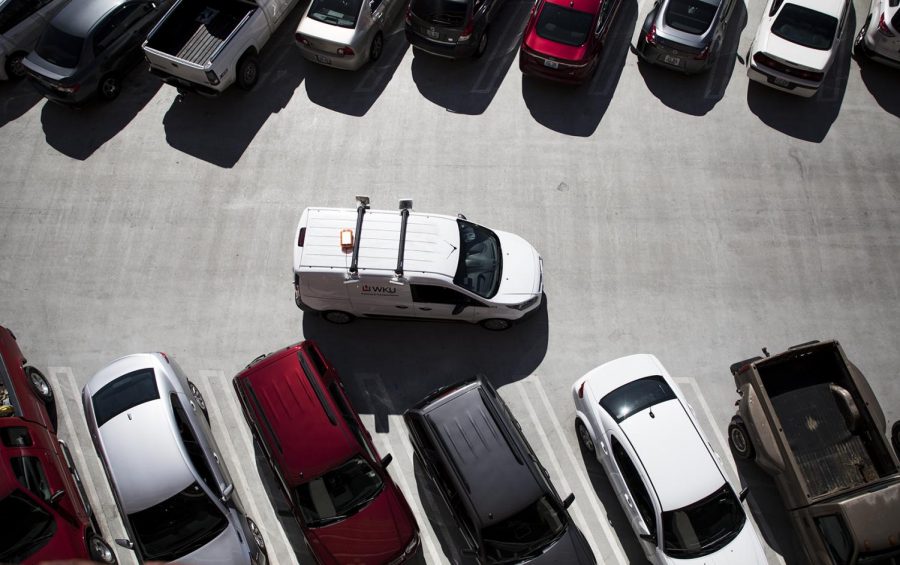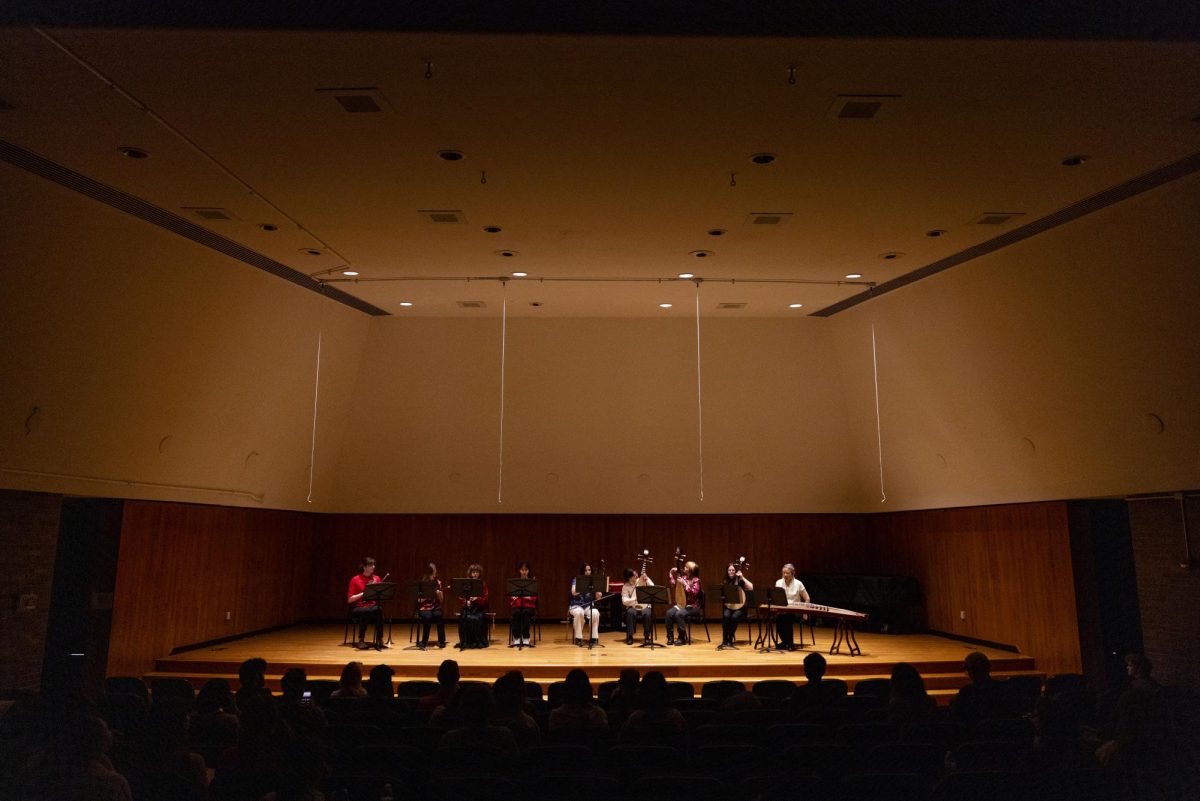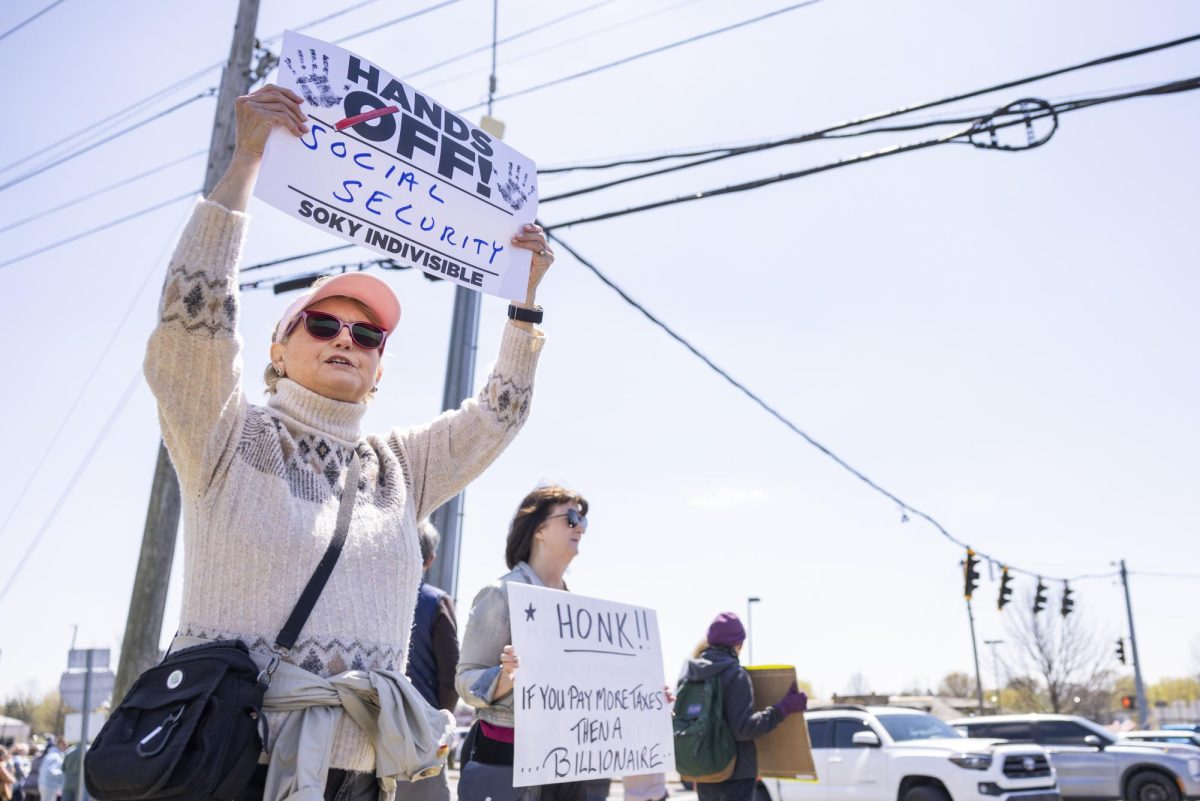Parking and transportation uses new RFID vans for enforcement
March 6, 2018
WKU’s Department of Parking and Transportation has a new parking enforcement device this semester.
Their new radio-frequency identification, or RFID, system reads parking permits to make sure cars are parked in the correct lot, Jennifer Tougas, director of parking and transportation said. The tracking device is placed in a parking and transportation van, which is then driven through lots to check for violations. It allows parking enforcement officials to cover the needed ground, even with a reduced workforce.
“It’s kind of been in beta-testing mode, but it’s a project we initiated last summer,” Tougas said. “So, we’ve been testing it throughout the fall and really started using it more extensively this spring.”
Tougas said the RFID system has greatly increased the effectiveness of parking enforcement and made enforcement officers’ jobs easier.
“We’re able to cover a greater area and then repeat that coverage more often,” she said.
Tougas said changes in parking enforcement personnel and the university-wide budget problems increased the need for the RFID system.
“We had a retirement in December,” Tougas said. “So we are currently down one enforcement officer, and with the hiring freeze, we have not requested to fill that position, so we’re trying to cover the same area with less people.”
According to statistics provided by Tougas in an email, ticketing has fallen this semester compared to spring of 2017.
In the first six weeks of spring 2017, the last semester without the RFID system, Parking and Transportation Services gave out 904 citations. They have given out 688 citations this semester, as of Feb. 22, a drop of 24 percent.
Tougas said she attributed this drop to several factors. She said one may be that students know about the RFID system and are more careful about where they park their cars.
“If we’re enforcing more frequently, and people know there’s a greater risk of getting a citation, then our compliance goes up, so we issue less tickets,” Tougas said.
Another factor that might affect the drop in the number of tickets given was the opening of the third parking structure on campus, Tougas said. This new structure has 750 more spots and is used as overflow parking, according to the Parking and Transportation Services webpage.
Tougas said the RFID system is occasionally used in the parking garages, but most of the use is focused on large, ungated lots.
Some students, such as Louisville sophomore Ryan Flora, had mixed feelings about the new RFID system.
“Most of the time the meters don’t even work,” Flora said. “I’ve put money in the meters, and they just don’t work, so I’m nervous I’m going to get a ticket when that happens.”
Flora said he was not previously aware of the RFID system, but he would be more careful where he parked going forward.
News reporter Matt Stahl can be reached at 270-745-6011 and matthew.stahl551@topper.wku.edu. Follow him on Twitter at @MattStahl97.
















